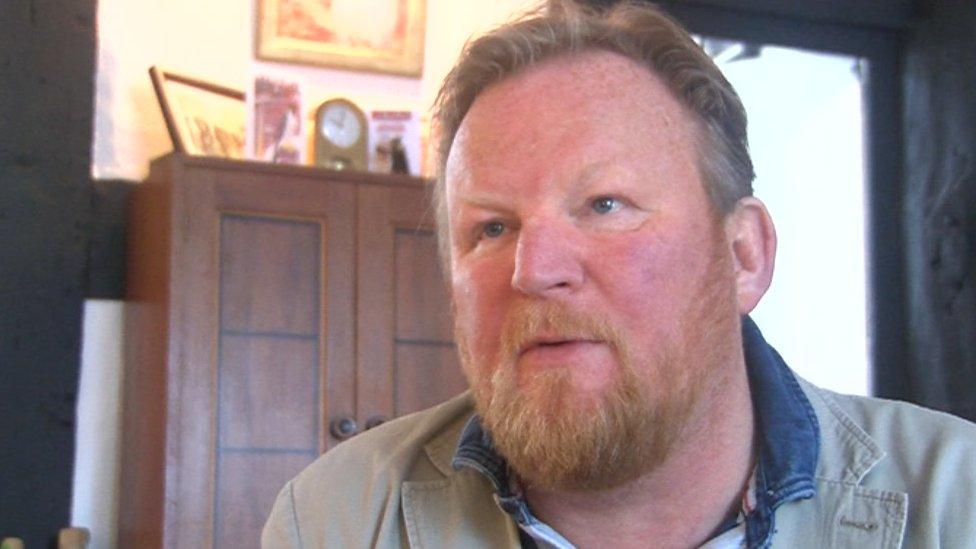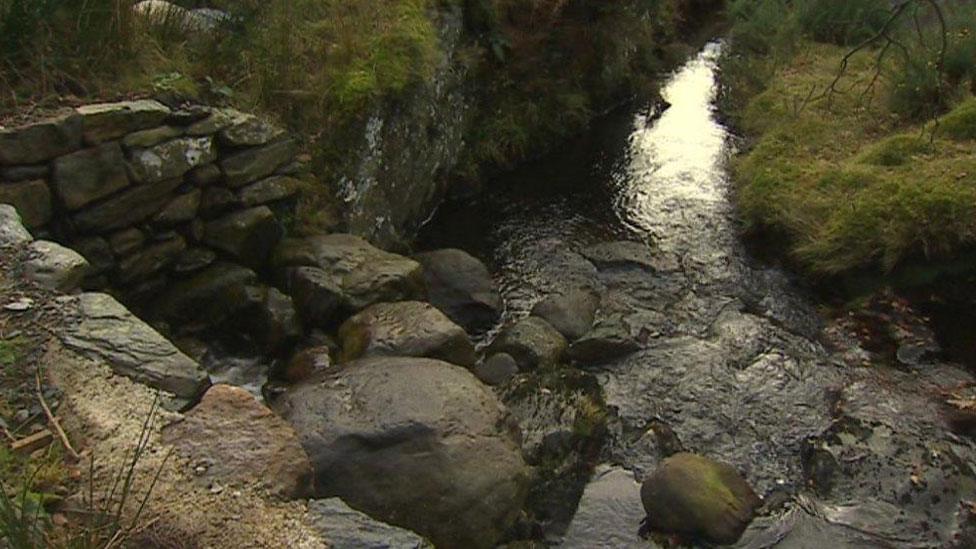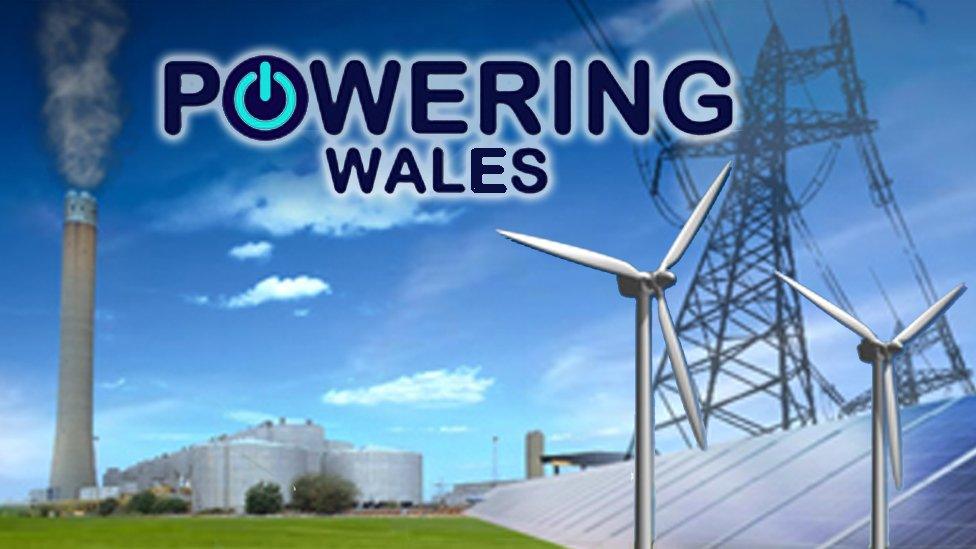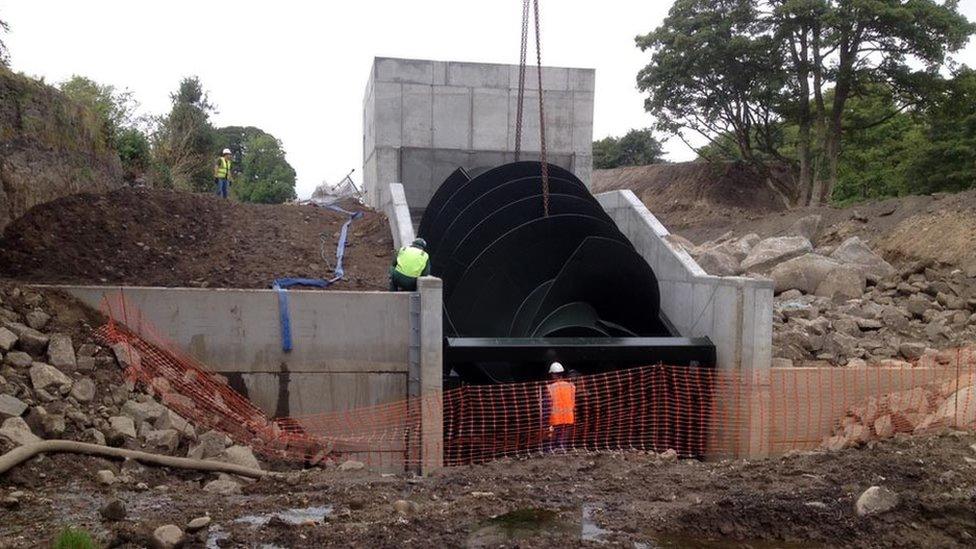Business rates rise 'a threat to hydro projects'
- Published

The future of many community hydro schemes is in jeopardy due to a sharp rise in business rates, operators say.
Some have seen increases of as much as 900% after a recent revaluation and the situation has been called "ridiculous".
It means virtually all of their profits are being handed over to councils, with some energy schemes now making a loss, BBC Wales has heard.
The Welsh Government said it was aware and considering the case for specific assistance.
The British Hydropower Association accused ministers of "sitting on their hands" while Community Energy Wales said it was "ripping the guts" out of projects.
Community energy schemes are often small enterprises run by volunteers, designed to generate income for their area.
But the way business rates are calculated means hydro schemes are hit hard:
Unlike most businesses, machinery used to generate power is included in the valuation
It is assumed the majority of the capital expenditure in delivering the schemes has been paid by the owner of the land - whereas it is the hydro's operator that usually pays
No allowance is made for the fact they are often run by volunteers
Schemes cannot increase the amount of money they make because they have a set rate for the power they generate

Simon Hamlyn described the situation as "ridiculous"
Business rates in England and Wales are calculated by an independent body - the Valuation Office Agency - but the Welsh Government is in charge of how they are raised here.
The British Hydropower Association has written to Finance Secretary Mark Drakeford to ask for support.
Chief executive Simon Hamlyn said: "Community hydro schemes are suffering and those businesses will say we can't afford to pay these rates and they'll abandon these schemes and that's the last thing we want."
Keith Jones, director of Community Energy Wales, said the average increase was 300%.
"No-one could foresee this coming, we didn't even put it down as a risk in our business plans that such a blunt instrument would be used to get more money out of us."
Mr Jones said the Scottish government had extended a 100% business rates relief for community energy schemes while in England they were capping the increase at £600.
A hydro project on a river at Abergwyngregyn in Gwynedd is affected
Gavin Gatehouse helps run the Ynni Anafon hydro scheme in Abergwyngregyn, Gwynedd, which has seen its monthly rate rise from about £900 to more than £2,000.
It took five years to set up and could generate up to £40,000 of disposable income per year for projects in the area.
A charity has been formed so groups and individuals can apply for grants, but this increase means there will be less money to hand out.
The community hydro at Bethesda is predicting it will now make a loss.

"It's very frustrating and I'm very angry about it," Mr Gatehouse said.
"We'll be seeing a huge proportion of our profit eaten away to substitute for lack of government provision of grants to local authorities."
Mr Drakeford has said more than £210m of rate relief was being provided for 2017-18 to businesses including community energy projects.
"We are going to prepare a new scheme for rate relief for small business from 2018 onwards. I am happy, as part of this, to consider the case for specific assistance and support for some projects, including the community energy projects and community hydro projects."
The Green Party said it would remove subsidies to fossil fuels and scrap "regressive taxes" on the community energy sector.
Welsh Liberal Democrats pledged to review business rates exemptions and make a presumption in favour of renewable energy projects "in or on suitable publicly owned buildings and land".
Plaid Cymru's shadow cabinet secretary for energy, Simon Thomas, said his party would introduce a rates relief package and loans for pre-planning application costs, which would only be repaid if planning consent was given.
- Published13 December 2016

- Published12 December 2016

- Published5 September 2016

- Published18 August 2016
